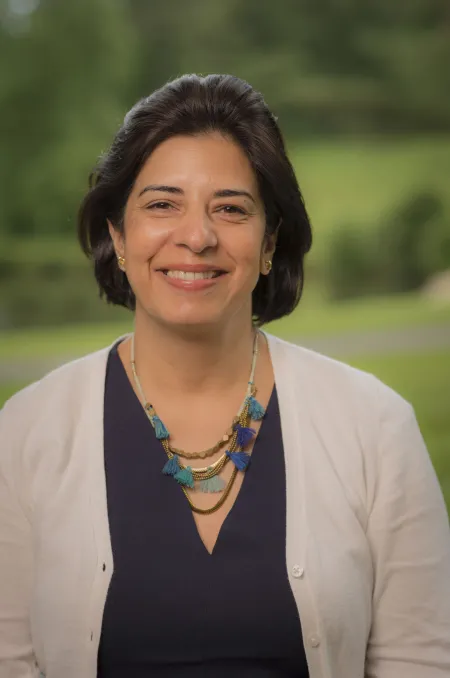Sigdyal said a turning point in her career development occurred when Garry Thomas, emeritus professor of anthropology at Ithaca College, invited her to apply for an internship that she served in Rome. And her experience in Rome led to a study abroad term in Kenya.
After getting her bachelor’s degree from Ithaca and a master’s in public administration from Columbia University, Sigdyal served as director of operations and interim chief operating officer at the Open Government Partnership, a 75-country initiative to promote government transparency; and she worked at the World Bank, launching a campaign to open up and transform public contracts.
After having lived in the United States for longer than the first 18 years of her life spent in Nepal, Sigdyal decided to give up her native citizenship in 2016 to become a U.S. citizen. That’s when she got the sense that perhaps American elections could be done better — with ranked-choice voting, a priority of FairVote, where she went to work in November 2018.
With ranked choice, voters can rank multiple candidates in their order of preference; candidates do best when they attract a strong core of first-choice support while also reaching out for second and or third choices.
“It creates more civil campaigns whereby, if you are a candidate running for office, you are not only trying to be the voters’ first choice, but you’re also trying to be the second choice,” Sigdyal said. “So, you cannot be a divisive force running a campaign; you must bring the highest number of people under your tent to win, and that changes the tone of campaigns.”
According to FairVote, ranked choice is used by the state of Maine and a number of cities, including San Francisco, Minneapolis, and Cambridge. A record number of women were elected to Congress in 2018 and, largely because of that, a record number of women are now serving in Congress. Moreover, largely because of the 2018 elections, a record number of women are now also serving in state legislatures across the country.
It took nearly 100 years for a woman, Nancy Pelosi, to be elected speaker of the House in 2007 and, of course, the country has not yet elected a woman president. But Sigdyal said she is encouraged by the number of organizations that are helping women run for office and raise money for their campaigns.
“More women need to be in office,” she said. “Female leaders and their work style often lead to consensus building, which is really needed in today’s political climate. So, I think engaging the 50% of our population in political leadership is super important. From voting, we’re now at a point where we need more women to lead. This country needs female leaders to help fix our broken democracy.”

